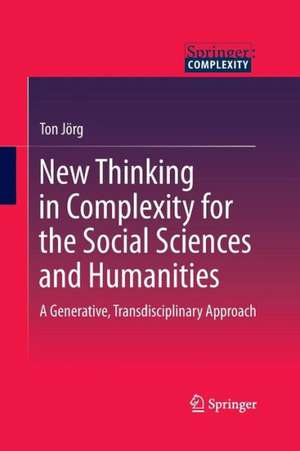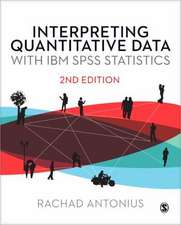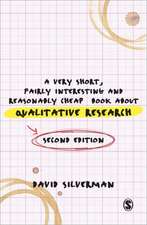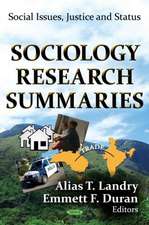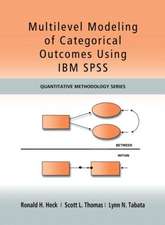New Thinking in Complexity for the Social Sciences and Humanities: A Generative, Transdisciplinary Approach
Autor Ton Jörgen Limba Engleză Paperback – 18 oct 2014
The main focus of this book is on new thinking in complexity, with complexity to be taken as derived from the Latin word complexus: ‘that which is interwoven.’
The trans-disciplinary approach advocated here will be trans-disciplinary in two ways: firstly, by going beyond the separate disciplines within the fields of both natural sciences and social sciences, and, secondly, by going beyond the separate cultures of the natural sciences and of the social sciences and humanities.
| Toate formatele și edițiile | Preț | Express |
|---|---|---|
| Paperback (1) | 642.36 lei 6-8 săpt. | |
| SPRINGER NETHERLANDS – 18 oct 2014 | 642.36 lei 6-8 săpt. | |
| Hardback (1) | 646.62 lei 6-8 săpt. | |
| SPRINGER NETHERLANDS – 9 aug 2011 | 646.62 lei 6-8 săpt. |
Preț: 642.36 lei
Preț vechi: 755.72 lei
-15% Nou
Puncte Express: 964
Preț estimativ în valută:
122.92€ • 131.44$ • 102.48£
122.92€ • 131.44$ • 102.48£
Carte tipărită la comandă
Livrare economică 18 aprilie-02 mai
Preluare comenzi: 021 569.72.76
Specificații
ISBN-13: 9789401785136
ISBN-10: 9401785139
Pagini: 336
Ilustrații: XII, 321 p. 98 illus., 19 illus. in color.
Dimensiuni: 155 x 235 x 18 mm
Greutate: 0.47 kg
Ediția:2011
Editura: SPRINGER NETHERLANDS
Colecția Springer
Locul publicării:Dordrecht, Netherlands
ISBN-10: 9401785139
Pagini: 336
Ilustrații: XII, 321 p. 98 illus., 19 illus. in color.
Dimensiuni: 155 x 235 x 18 mm
Greutate: 0.47 kg
Ediția:2011
Editura: SPRINGER NETHERLANDS
Colecția Springer
Locul publicării:Dordrecht, Netherlands
Public țintă
ResearchCuprins
Contents. -Mission of the Book.- Introduction.- Chapter 1: The Crisis in the Social Sciences.- Chapter 2: Giving Birth to a New Science – Setting the Agenda.- Chapter 3: A New Agenda for the Social Sciences.- Chapter 4: On Becoming Reflective about our Viewing and Doing Science.- Chapter 5: The Reality of Reality.- Chapter 6: New Ways of Knowing about the Complexity of Reality.- Introduction to Chapters 7 to 9.-Chapter 7: Rethinking Interaction.- Chapter 8: Rethinking Causality.- Chapter 9: Rethinking the Unit of Study.- Chapter 10: The Complexity of Complexity. - Chapter 11: The Complexity of Human Interaction.- Chapter 12: Summary and Conclusions. References.- Name Index.- Subject Index.
Recenzii
“This book effectively captures some of the excitement and the sense of possibility that comes with the exploration of new paradigms with potentially major implications across the board, and it stimulates readers to develop their own thoughts about how the paradigm shift could materialize. The many wonderful illustrations of non-linear and fractal shapes and concepts … are helpful in this context. They provide a welcome antidote to the generally high level of abstraction that comes, perhaps inevitably, with transdisciplinary scholarship.” (Matthijs Koopmans, Nonlinear Dynamics, Psychology, and Life Sciences, Vol. 16 (4), 2012)
“For the theorist of transdisciplinarity New Thinking in Complexity for the Social Sciences and Humanities is a useful source. There is substantial evidence of creative pathways towards comprehending and applying transdisciplinary strategies in research. … This approach could serve as a useful roadmap towards the implementation of transdisciplinarity.” (Johann Tempelhoff, TD The Journal for Transdisciplinary Research in Southern Africa, Vol. 7 (1), July, 2011)
Notă biografică
Ton Jörg has been an educational scientist since 1982 at the University of Utrecht, The Netherlands. He studied Physics and Mathematics at the University of Amsterdam (BSc 1970). In 1969, he started to study Psychology at the same university (M.A. 1977). He worked as an evaluation researcher in different national (on adult education, and physics education) and international projects (3rd SISS-International Science Project). In 1994, he finished his dissertation about the choice of physics as an examination subject. He has been involved in complex systems and complexity thinking since 1971. He wrote articles on invitation to open up a conversation on complexity and education, for journals like Educational Research Review, in 2007, and for Complicity, in 2009, with extended comments of experts in the field.
Textul de pe ultima copertă
This book focuses on the development of new thinking in complexity and on the tools needed for this new thinking, i.e. the development of a new language for complexity. This new language is very much about how a nonlinear complex reality is part of real-world complexity. We can start thinking in complexity about the complex topics of our social sciences and humanities by making use of this new language. With the new tools and the new language, it will be possible to deal with the complexity of real-world complexity and to show the promise of harnessing complexity, by turning complexity into effective and advantageous complexity for our social sciences and humanities. It is the very potential of complexity as self-potentiating which makes complexity so beneficial for viewing and doing social sciences. The new tools and the new thinking in complexity may be considered to be the warp and woof of a new science of complexity.
Caracteristici
Offers a way to learn to think in a new way about the subject of study in the social sciences and humanities One can learn to think in complexity about the real complexity of a nonlinear complex reality Opening the social sciences by offering a new agenda for these sciences by taken complexity not for granted but as a serious topic of study with great potential for humanity and society at large Includes supplementary material: sn.pub/extras
